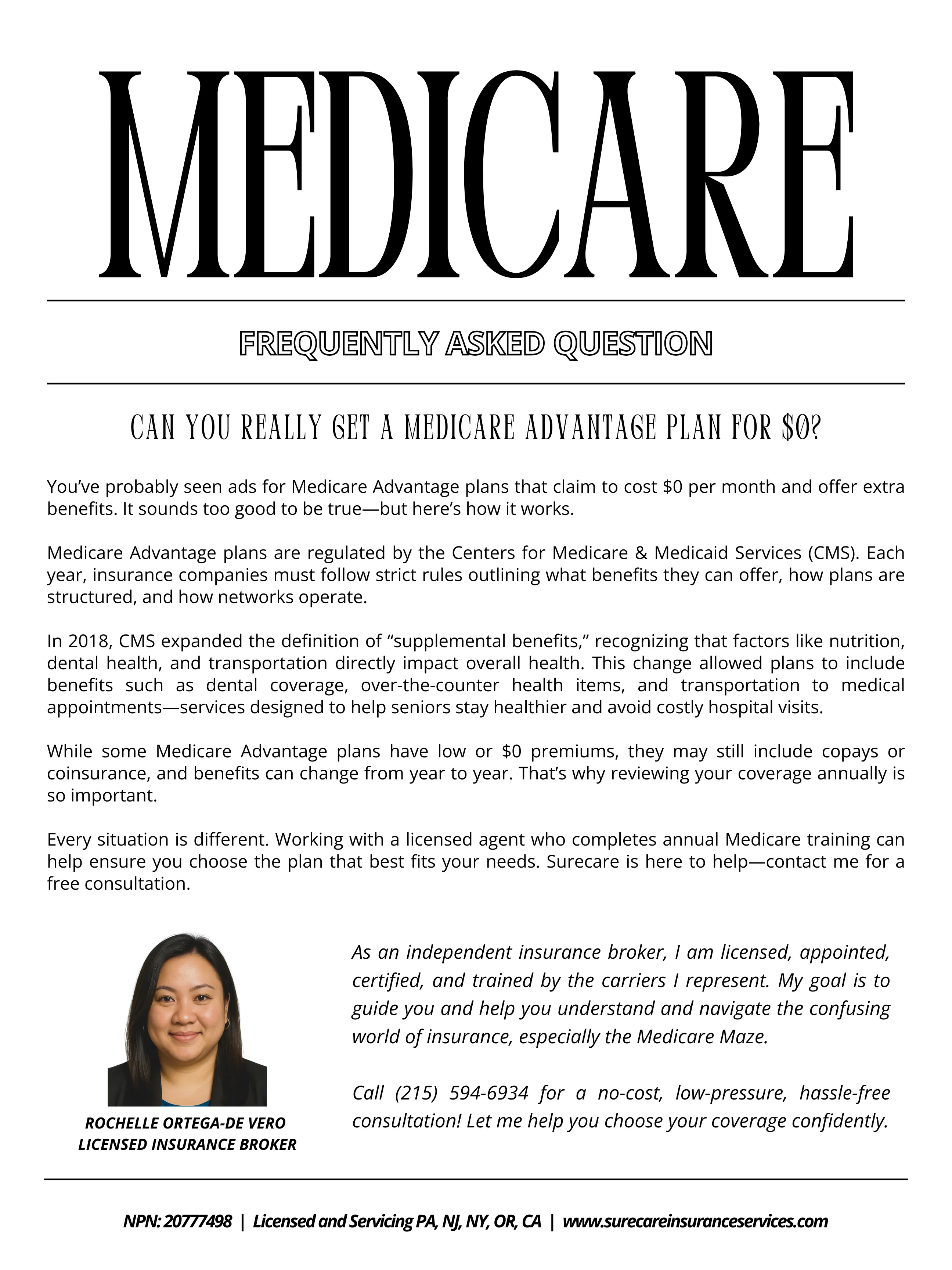MEDICARE FAQ

IF YOU HAVE ANY QUESTIONS, PLEASE FEEL FREE TO CONTACT US.
Assuming you have met the work-related eligibility requirements, you may begin enrollment into Medicare 90 days in advance of the month you turn 65.
Online at SSA.gov or in person at a local Social Security office.
Part “A” is typically in place, and a paid-up benefit when you turn 65. Part “B” is not, unless you have enrolled in Social Security prior to age 65. If you have not filed Social Security benefits, then you need to proactively enroll in Part “B” benefits and begin paying for them.
Yes. However, you will not have prescription coverage, and you will face unlimited exposure to those costs due to the gaps in Original Medicare.
In addition to having a huge gap in coverage, you will likely face a penalty from Medicare. A Part “B” penalty can be 10% of your Part “B” premium for each 12-month period outside of Medicare, and up to 1% of the national average of a Part “D” plan for each month absent Part “D”.
No, a retiree plan will typically wrap around your Medicare primary benefits.
Medicare does not have spousal or dependent coverage. Medicare is individual. If your spouse has reached age eligibility (65), then they can enroll in Medicare of their own accord 90 days in advance of the month they turn 65.
Part “D” is the Prescription Drug plan introduced in 2006.
Part “C” is another name for Medicare Advantage. Also named MA, MSA, or MA-PD (when prescription plans are included).
Maybe. If the employer group has 20 eligible employees or more, and you’re going to continue to work, then yes it’s an option. But there are many things to consider.
Agents/Brokers receive commissions from the insurance carriers they are contracted with, when they write your policy. These commissions are automatically built into your insurance premiums, whether you use a broker or not. The rates we provide are exactly the same as the rates offered by the insurance carriers.
Medicare is confusing. We'll make it simple. We'll be your trusted guide, and instill confidence. So you can choose the suitable plan that fits your needs and your budget.
BASED IN PHILADELPHIA, PA
LICENSED & SERVICING: PA, NJ, NY, OR, CA
This is a solicitation of insurance. Agent is a licensed and certified representative of multiple Medicare Advantage and Prescription Drug plans each with a Medicare contract. Enrollment depends on contract renewal. Contact may be made by an insurance agent or insurance company. Not affiliated with or endorsed by any government entity or agency. "We do not offer every plan available in your area. Currently we represent several organizations which offer many products in your area. Please contact Medicare.gov, 1-800-MEDICARE MEDICARE (TTY: 1-877-486-2048), 24 hours a day, 7 days a week, or your local State Health Insurance Program (SHIP) to get information on all your options." This is a proprietary website and is not associated, endorsed or authorized by the Social Security Administration, the Department of Health and Human Services or the Center for Medicare and Medicaid Services. This site contains decision-support content and information about Medicare, services related to Medicare and services for people with Medicare. If you would like to find more information about the Medicare program please visit the Official U.S. Government Site for People with Medicare located at http://www.medicare.gov
 " class="object-cover object-center">
" class="object-cover object-center">